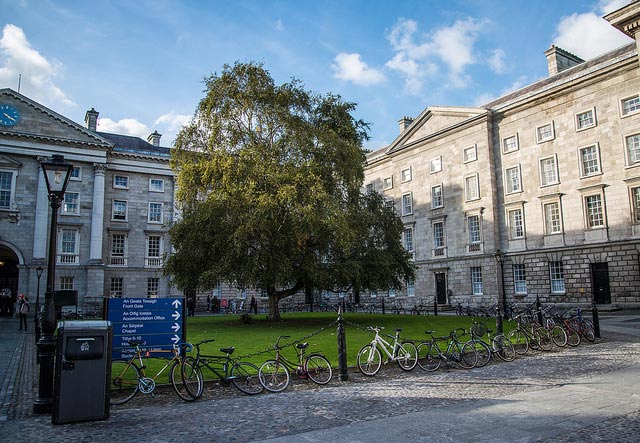Trinity College Dublin Students’ Union (TCDSU) tonight passed a motion mandating the union’s president and officer for students with disabilities to lobby College to conduct a study into the feasibility of making all levels of House Six accessible.
The motion was proposed by TCDSU’s Officer for Students With Disabilities Niamh Herbert and seconded by the Deputy Science, Technology, Engineering and Maths Convenor Bev Genocky.
House Six is home to TCDSU along with the Central Societies Committee (CSC), Trinity Publications and The University Times.
The motion states that “any floor above the ground floor in House Six is not accessible to wheelchair users”.
“Students with any kind of disabilities should not be alienated from any aspect
of university life.”
Speaking in favour of the motion, Herbert said: “I always find it quite daunting. It’s hard to take part in student activities when you can’t even get in the building. I’m excited to see what happens next year.”
Chloe Staunton added: “It speaks volumes that our current Disability Officer can’t access House Six,” pointing out that the TCDSU requires “a short-term solution”.
The union’s lack of accessibility was a major talking point during the TCDSU elections earlier this year. The eventual winner of the presidential election Leah Keogh said that “we need to be where students can be”.
She promised to either add a lift to the building or move the union to a more accessible location.
Trinity this year promised to invest a €482,364 grant from the government to make College more accessible.
The funding comes from a major €5.4 million fund for supporting students with disabilities across the country, announced by Higher Education Minister Simon Harris in January.
Trinity said that it would use the money to develop a sensory processing project, which would aim to provide students who have sensory processing issues with specialist supports and resources, and to raise awareness among staff about the issue.
College also said that it would seek to make virtual learning more inclusive for students with disabilities, and increase engagement with those students through Trinity’s new global safety and security solution, which aims to improve communications between the university and staff and students.
Finally, Trinity said it would invest more into making sure that students with disabilities have unobstructed access to all strategic buildings, as well as making sure that entrances to buildings, lecture theatres and laboratories are accessible.







